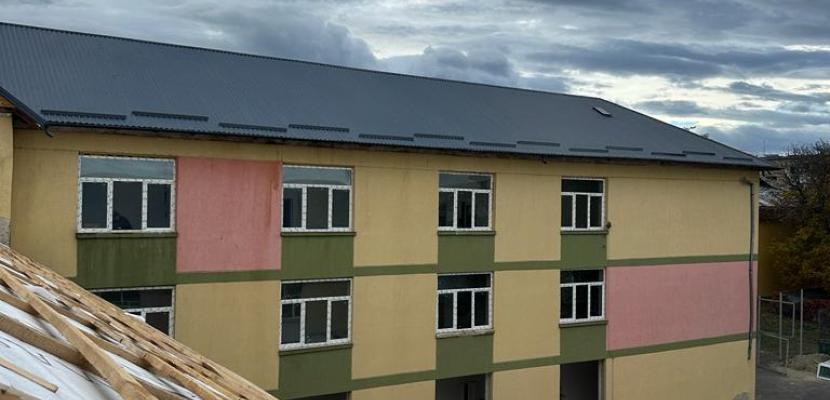
Circular economy in educational units- rehabilitation and renewal projects

About this good practice
The policy instrument of Suceava Municipality within KARMA project is the Sustainable Energy and Climate Action Plan of Suceava Municipality 2021- 2030 (SECAP) which only broadly defines the areas of intervention towards circular economy. In the process of rehabilitating educational units, the implementation of energy-efficient lighting systems, proper building insolation, and the use of renewable energy sources can contribute to reduce the carbon footprint of these educational facilities.
In recent years, one of the main focuses of Suceava municipality was energy efficiency, Suceava city working hard on resilience and flexibility for the green economy. The ongoing projects, with a total amount of 130.000.000 Euro, are in the field of energy efficiency (public and residential buildings), green public transport (100 % electric), sustainable mobility, rehabilitation of green areas, digitalization of public administration’s services. Suceava Municipality focuses on local actors involvement, especially citizens, in projects design, implementation and monitoring. There will be actions and specific efforts to bring relevant stakeholders together and involve them in a co-creation process, often in very practical contexts such as sustainable mobility, cycling, energy efficiency in each neighbourhood, green economy and others.
An example of project being the rehabilitation and modernization of Alexandru Ioan Cuza and Samuil Isopescu Technical Colleges.
Resources needed
The resources will depend on the complexity of the construction work. The implementation team from Suceava municipality, the construction team, and representatives of the educational unit are involved. The expenses are not specific, and are foreseen in the overall budget of the project.
Evidence of success
Each construction company in Suceava is obliged to make careful use of non-hazardous waste and to draw up a detailed statement of this resulting from construction and demolition activities, divided into four categories (wood, metal, plastic, demolition waste). Upon completion of the works, depending, there will be a report indicating that at least 70% (by weight) of non-hazardous waste generated from construction and demolition activities on the construction site are prepared for reuse.
Potential for learning or transfer
The aim of Suceava municipality is to extend the concept of circular economy to all the investments that are carried out in the city. The adoption of these measures in both public and private projects can contribute to a more efficient and sustainable transition towards a circular economy in Suceava Municipality.
Stakeholders from several fields, namely, construction companies, sanitation companies, architects, North East Regional Development Agency; will transpose into their activity what they have learned from the good practice, each according to their field of activity.
Circular economy concept implemented in construction works for rehabilitation (energy efficiency) - Material recycled: Plastic – 8 tones, Wood – 1,8 tones, Metal – 2 tones.
The Municipality of Suceava is implementing several projects in the field of circular economy, aiming to promote sustainability and efficient resource management: 5 Educational units and 11 Residential building.
Further information
Images

Good practice owner
You can contact the good practice owner below for more detailed information.